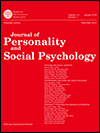An exploration of happiness, anxiety symptoms, and depressive symptoms among older adults during the coronavirus pandemic.
The COVID-19 pandemic has affected millions of people worldwide. Because of the challenges associated with the pandemic, universal levels of happiness have likely depleted. We know little about how those with prior existing mental health concerns have responded to the pandemic. Using cross-sectional (study 1; N = 1,366) and longitudinal (study 2; N = 262) data, we utilized a stress and resilience perspective to explore mental health symptoms and happiness among older adults before and after the declaration of the pandemic. Results for both studies indicated higher levels of depression and anxiety symptoms predicted lower levels of happiness; however, for those who indicated higher levels of mental health symptoms, post-pandemic declaration happiness levels were higher than pre-pandemic happiness levels. Findings suggest that resilience may be learned throughout a lifetime, and that experiences from prior stressors may show benefits in responding to future ones, even among vulnerable populations.



